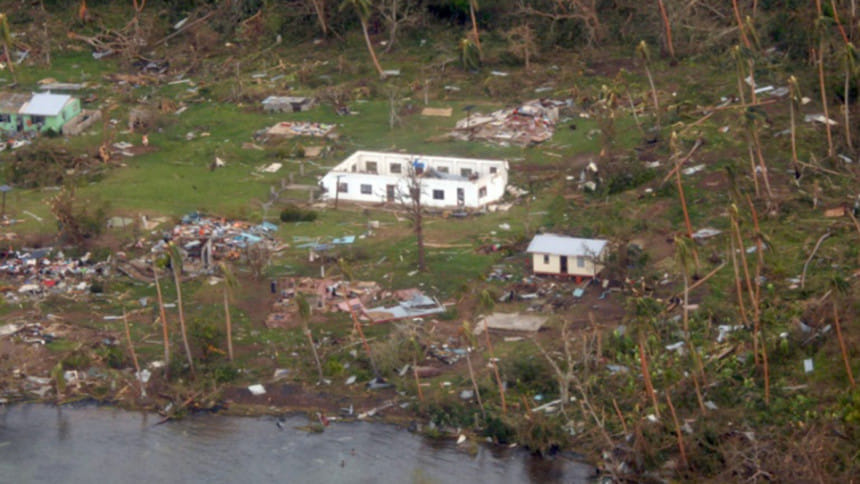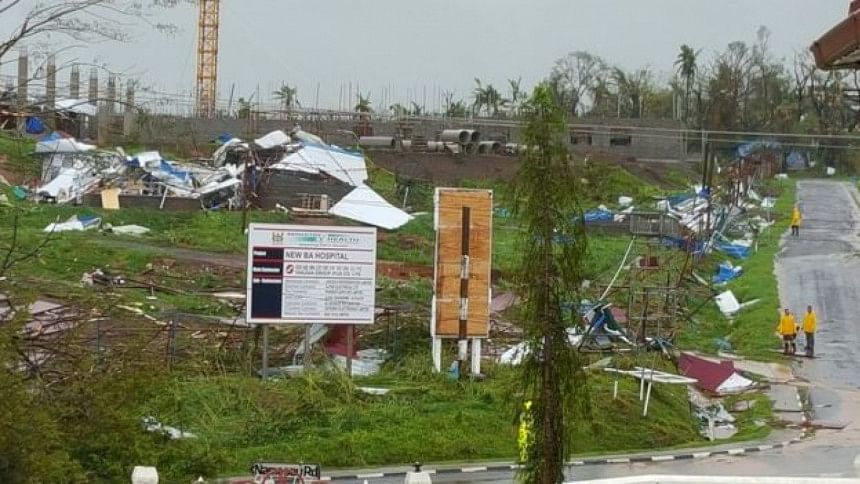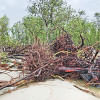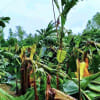Clean-up begins in Fiji after cyclone

A clean-up operation has begun after the most severe cyclone to hit Fiji in living memory killed at least 20.
Rescue workers said that number could rise as some of the worst-hit outlying islands have yet to be reached.
Thousands are now in evacuation centres while many parts of the country remain without power.
Cyclone Winston, which hit over the weekend, brought winds of over 320km/h (200mph), torrential rain, and waves of up to 12m (40ft).
The category-five storm - among the biggest ever to hit the southern hemisphere - moved westward after making landfall at 18:30 local time (06:30 GMT) on Saturday in the north of Fiji's main island, Viti Levu.
It changed direction at the last minute, sparing the capital Suva the full force of its winds.
Aerial imagery showed some villages, particularly in outlying areas, were completely destroyed. A man in Viti Levu told Reuters the damage was so extensive that "it looks like a different country".
The national disaster management office told local media on Monday that the death toll had jumped to 20 people.

The cyclone cut electricity and communication lines and destroyed hundreds of homes.
Thousands are now living in 750 evacuation centres opened by the government, which is now encouraging people to start returning home to clean up.
George Dregaso, of Fiji's National Disaster Management Office, told the Associated Press that about 80% of the nation's 900,000 people were without regular electricity.
The government has declared a state of emergency and called on private companies to help provide transport and relief supplies.
Officials had also put in place a nationwide curfew, giving police extra powers of arrest, but it was lifted on Monday.
Schools have been ordered to shut for a week, but the main airport has re-opened to receive humanitarian supplies and allow tourists to leave.
Australia and New Zealand have authorised the release of emergency aid supplies held in Suva. They have also supplied planes to help assess the damage from the air in remote areas.
Red Cross Pacific office head Ahmad Sami told AFP news agency humanitarian needs were likely to be "very high".
Oxfam's Pacific Regional Director Raijeli Nicole said the scale of the disaster would become clear once communications were restored with the remote areas worst affected.
"The Fijians are desperately trying to repair severed lines of communication, but they hold grave fears that the news waiting for them will be dire," she said.
Prime Minister Frank Bainimarama described the storm on Saturday as "an ordeal of the most grievous kind".
"When we are able, we will provide timelines for the return of water and power," he said.
Tourism Minister Faiyaz Siddiq Koya said the storm had caused widespread devastation, but insisted that "all visitors are safe and comfortable", despite a lack of communication with some areas.

 For all latest news, follow The Daily Star's Google News channel.
For all latest news, follow The Daily Star's Google News channel. 







Comments